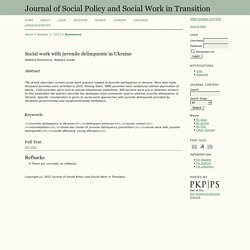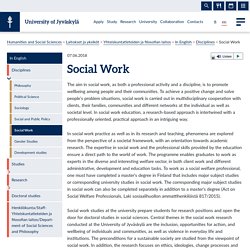

SafetyStandards2013. The Job Description of a Child Welfare Social Worker. By Ashley Miller Updated June 29, 2018 Child welfare social workers labor to ensure the welfare and well-being of children and their families.

The demand for child and family social workers was expected to increase by 16 percent from 2016 to 2026, according to the U.S. Bureau of Labor Statistics. Child welfare social workers earned a median income of $44,380 in 2017. The job presents a number of challenges, but it can help you make a meaningful and significant difference in the lives of your clients. How to Screen Adoptive and Foster Parents. Chapter One: What You Need to Know Before You Begin Interviews We advocate a team approach to adoption and foster care placement in which private and public social agencies designate specific social workers, known as screeners, to be responsible for screening adoptive and foster applicants; a second category of social workers, known as child care specialists, to be responsible for supervising children once they have been placed in adoptive or foster homes; and a placement team composed of the screener, the child care specialist, the protection worker who worked with the family before the child came into care, and an adoption or foster home supervisor, to be responsible for matching the child with the caregiver.

All have important roles to play in the process, but the screener establishes the pace for everyone else and determines the ultimate disposition of the child. Our purpose in writing this book is to help facilitate best practice guidelines for adoptive and foster care selection. NASW Law Note Social Workers and Child Abuse Reporting. Social Workers and Child Abuse Reporting: A Review of State Mandatory Reporting Requirements is part of a series of General Counsel Law Notes written with the support of the NASW Legal Defense Fund.

Social workers often find themselves torn between their commitment to their clients and their responsibility to society when faced with the possible need to report child abuse to authorities. Yet the reporting of child abuse represents far more than just an ethical dilemma. Social workers are not only required to report any suspected cases of child abuse and neglect, they can face varying levels of civil and criminal liability if they fail to do so.
Intervention on behalf of the child has become a societal expectation, and federal and state laws reflect the values underlying that expectation. This law note discusses the legal issues social workers confront when dealing with situations of child abuse and neglect. Introduction CAPTA RequirementsMinimum Acceptable DefinitionsState Statutes 2. 3. VOL. Emergency response field tool 122014. Untitled. Untitled. Social work with juvenile delinquents in Ukraine Nataliya Romanova, Nataliya Gusak Abstract The article describes current social work practice related to juvenile delinquency in Ukraine.

More than eight thousand juveniles were arrested in 2010. Among them, 5800 juveniles were sentenced without deprivation of liberty, 1500 juveniles were sent to special educational institutions, 900 persons were put in detention centers. Keywords. Untitled. The aim in social work, as both a professional activity and a discipline, is to promote wellbeing among people and their communities.

To achieve a positive change and solve people’s problem situations, social work is carried out in multidisciplinary cooperation with clients, their families, communities and different networks at the individual as well as societal level. In social work education, a research-based approach is intertwined with a professionally oriented, practical approach in an intriguing way. In social work practice as well as in its research and teaching, phenomena are explored from the perspective of a societal framework, with an orientation towards academic research. The expertise in social work and the professional skills provided by the education ensure a direct path to the world of work. Untitled. In his contribution, Hugh Lacey pays attention to the role science can play in strengthening democratic values and practices.

This presupposes the inclusion of a broad range of value outlooks that are actually held in a democratic society. According to Lacey, current science is mainly serving one particular value outlook. It is characterized by commercialization and uses a narrow scientific methodology driven by decontextualizing research strategies (DS), as opposed to contextualizing research strategies (CS). Lacey advocates methodological pluralism, i.e., employing both DS and CS, in order to develop possible alternatives to the dominant DS scientific research.
Alternatives that might, for instance, be of greater value for the underprivileged or marginalized in society, or for those motivated by sustainability and social justice rather than techno-scientific efficiency and economic gain. Then, how to challenge “the hegemony of private interest science” that Lacey sketches?